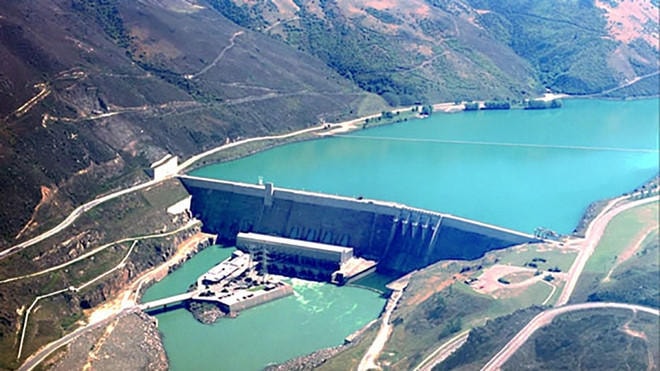Why did Pakistan cancel the $14 billion hydropower project with China?
(Baonghean) - Pakistani press reported that the country has decided to cancel a $14 billion hydroelectric dam construction project with China because it cannot accept the strict conditions.
 |
| The Diamer-Bhasha dam project will continue to be implemented by Pakistan after stopping cooperation with China. |
Several major Pakistani newsrooms reported on November 17 that Pakistan had removed the Diamer-Bhasha Dam project, a joint project between Islamabad and Beijing, from the China-Pakistan Economic Corridor (CPEC) - a key element of China's Belt and Road Initiative. The move was due to strict requirements from China, the project's financial provider.
Specifically, the conditions that China put forth include that it will have ownership of the Diamer-Bhasha dam, which is worth up to 14 billion USD, along with the operating and maintenance costs of the dam. At the same time, Beijing also requested approval for the right to build another dam in Pakistan in the future.
"The conditions set by China are unachievable and against our interests," Chairman of the Pakistan Water and Power Development Authority Muzammil Hussain said on November 16. It is known that Pakistan will bear all the costs to carry out this hydroelectric dam construction project.
Pakistan's decision to cancel the Diamer-Bhasha dam project came just days after Nepal announced the cancellation of the $2.5 billion Budhi Gandaki hydropower project, which had been previously awarded to a Chinese state-owned company.
The reason given by Nepal is that the agreement to build the Bhudi Gandaki hydropower plant with China's Gezhouba Group was hastily decided and improperly, which could threaten the country's environment, although the two sides had previously signed a memorandum of understanding in June to build a 1,200 MW hydropower project, about 80km from the capital Kathmandu, after Nepal agreed to participate in Beijing's Belt and Road project.
Both Pakistan and Nepal need and welcome Chinese investment to develop their infrastructure, but they have put environmental factors, sustainable development and national interests first.
The fact that both countries canceled the project with China is considered by experts to be a major setback for China as Beijing seeks to expand its influence in Nepal through infrastructure construction, and is also a warning for Beijing to be cautious when implementing sensitive projects abroad.
However, experts say the failure of some projects is not a big problem for China's ambitious Belt and Road Initiative.
"It's not surprising that similar problems will occur in the future. However, it won't change the overall picture," said Zhao Gancheng, an expert from the Shanghai Institute of International Studies.
Nhat Minh
(According to Business Standard)
| RELATED NEWS |
|---|

.jpg)

